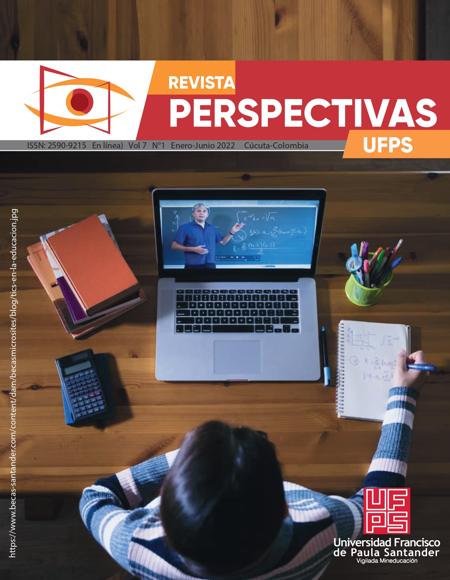Theoretical perspectives on the teaching of World Languages in the United States
Theoretical perspectives on the teaching of World Languages in the United States
Main Article Content
The importance of bilingualism as a result of globalization, in both the adoption of international education policies and in the skills required of the 21st century citizen, demands that second language teachers constantly reflect on their most effective teaching practices to best serve the needs of the post pandemic students. What are the most effective methods for teaching World Languages? How does one transition from passive learning -which lacks communicative results- to active learning, with a communicative approach, and based on real world situations? The answers point to student-centered instruction, study plans relevant to the environment, systematic use of ICT, and active pedagogies that develop the skills of knowing how to be, do, learn and live together. The objective of this article is to reflect on second language education methodologies as well as the need to include playful and project-based learning, two cooperative teaching methodologies that become relevant in the post-pandemic, as part of students' social-emotional support within the language classroom.
Downloads
Article Details
Bender, W. N. (2012). Project-based learning: differentiating instruction for the 21st century. Corwin Press. p. 23
Revista:
Muñoz-Repiso, A. G. V., & Gómez-Pablos, V. B. (2017). Aprendizaje Basado en Proyectos (ABP): evaluación desde la perspectiva de alumnos de Educación Primaria. Revista de Investigación Educativa, 35(1), pp. 113-131. DOI: https://doi.org/10.6018/rie.35.1.246811
Sánchez Cabrera, F. A. (2007). El Fleming, D. S. (2000). A Teacher's Guide to Project-Based Learning. Scarecrow Education, Attn: Sales Department, 15200 NBN Way, PO Box 191, Blue Ridge Summit, PA 17214.
Foreman, Joel. (2003).“Next Generation Educational Technology Versus the Lecture,” Educause Review. pp. 12-22. DOI: https://doi.org/10.1016/S0961-1290(03)80411-8
Mellenthin, C. (2018). Engaging & Powerful Techniques for the Treatment of Childhood. PESI.
Smilansky, S., & Shefatya, L. (1990) Facilitating play: A medium for promoting cognitive, socioemotional, and academic development in youngchildren. Gaithersburg, MD: Psychosocial & Educational Publications.
Trujillo, F. (2015). Aprendizaje basado en proyectos. Infantil, Primaria y Secundaria. Ministerio de Educación.
Sanuy, C. (1998) Enseñar a jugar. España: Marsiega.
docente frente al reto de motivar al alumno. Revista Iberoamericana Producción Académica y Gestión Educativa. https://doi.org/ISSN
Página Web:
Alrubail, R. (2015, January 4). Scaffolding Student Reflections + Sample Questions. Edutopia; George Lucas Educational Foundation. https://edut.to/3dqLopK
American Council of the Teaching of Foreign Language. (2021). Benefits of Language Learning ACTFL. Www.actfl.org. https://bit.ly/3NmeSFN
AVID. (2022). Support Student Reflection, Critique, and Revision in Project-Based Learning. AVID Open Access. https://bit.ly/3LjGhXf
Bogler, M. (2018). How do you teach 21st Century Skills? A Project Based Learning (PBL) Approach. https://bit.ly/3EsxdMv
Buck Institute for Education. (2021) “Collaboration Rubrics.” PBL Works.my.pblworks.org/node/11282.
CDC. (2019, February 20). Adolescence (15-17 years old). Centers for Disease
Control and Prevention. https://bit.ly/3xUwbXe
Collaborative Classroom. (2017). Lowering the Affective Filter for English Language Learners Facilitates Successful Language Acquisition. Center for the Collaborative Classroom. https://bit.ly/3uth4CX
Galeana, L. (2016). Aprendizaje basado en proyectos. Dra. Lourdes Galeana dela O. Universidad de Colima. https://bit.ly/31G1FEJ
Government of Northwest Territories. (2017). WHAT IS PLAY-BASED LEARNING? https://bit.ly/3NwXxu2
Grove, A. (2019). What Colleges Say About Their Second Language Requirements. ThoughtCo.
Hirsh-Pasek, K., Zosh, J. M., Golinkoff, R. M., Gray, J. H., Robb, M. B., & Kaufman, J. (2015). Putting Education in “Educational” Apps. Psychological Science in the Public Interest, 16(1), 3–34.https://doi.org/10.1177/1529100615569721 DOI: https://doi.org/10.1177/1529100615569721
Jensen, B., & Kimmons, R. (2021). Making Meaning in My Classroom. In edtechbooks.org. EdTech Books. https://edtechbooks.org/equitable_teaching
Kayımbaşıoğlu, D., Oktekin, B., & Hacı, H. (2016). Integration of Gamification Technology in Education. Procedia Computer Science, 102, pp. 668-676.
https://doi.org/10.1016/j.procs.2016.09.460 DOI: https://doi.org/10.1016/j.procs.2016.09.460
National Board. (2010). World Languages Standards Second Edition for Teachers of Students Ages 3-18+. bit.ly/3qxnsYu
Pandolpho, B. (2018, May 4). Putting Students in Charge of Their Learning. Edutopia; George Lucas Educational Foundation. https://edut.to/3owb5vo
Parker, J. L. (2020). Students’ Attitudes toward Project-Based Learning in an Intermediate Spanish Course. International Journal of Curriculum and Instruction, 12(1), 80–97. https://eric.ed.gov/?id=EJ1249547
Pham, V. P. H. (2021). The Effects of Collaborative Writing on Students’ Writing Fluency: An Efficient Framework for Collaborative Writing. SAGE Open, 11(1), 215824402199836. https://doi.org/10.1177/2158244021998363 DOI: https://doi.org/10.1177/2158244021998363
Plass, J. L., Homer, B. D., & Kinzer, C. K. (2015). Foundations of Game-Based Learning. Educational Psychologist, 50(4), 258–283. https://doi.org/10.1080/00461520.2015.1122533 DOI: https://doi.org/10.1080/00461520.2015.1122533
Rutgers University. (2020). “How Does Group Work Benefit Me? | Learning Centers.” Rlc.rutgers.edu rlc.rutgers.edu/node/469
Stagnitti, K., Bailey, A., Hudspeth Stevenson, E., Reynolds, E., & Kidd, E. (2016). An investigation into the effect of play-based instruction on the development of play skills and oral language. Journal of Early Childhood Research, 14(4), 389–406. https://doi.org/10.1177/1476718x15579741 DOI: https://doi.org/10.1177/1476718X15579741
U.S. Chamber of Commerce. (2021, January 15). The Benefits of International Trade. US Chamber. https://bit.ly/3tBoxAI
Usher, K. (2019, April 10). Differentiating by Offering Choices. Edutopia; George Lucas Educational Foundation. https://edut.to/3ItLn2g







